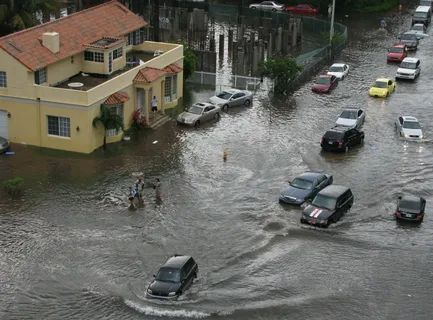Things in life sometimes don’t go as planned, and this is not always a good thing. A natural disaster can cause significant damage to your property, which can be stressful. Storms can wreak havoc on your home. High winds and persistent rains can contribute to flooding, which poses a concern in addition to harming your roof, siding, and other external components of your property. Flooding can also occur when exterior breaches allow water to enter premises like residences and workplaces. In order to keep your property completely dry, look for the best roofing near me services and get assistance with inspection for leaks or damage to rain gutters, get gutter cleaning and repair, roof repair or replacement, as well as emergency services during a significant storm in the Lombard area. If a building is located within a specific distance of a stream or another possible groundwater region, many communities have passed legislation requiring landowners to elevate their buildings. Residents should take measures to stop rain from entering roof cracks, mend leaky gutters, and maintain proper drainage channels in order to lessen the likelihood of flooding. Humans are regretfully powerless in such circumstances. Such events are challenging to anticipate or prevent. Floods can pose a significant threat. You can maximize your claim by hiring a public adjuster in Rockford who is qualified to evaluate the risks connected to the property.
What is the procedure for filing a claim for insurance coverage?
People frequently risk their lives, residences, and belongings during natural catastrophes like floods and tremors. Both individuals and companies may suffer serious harm as a result of these occurrences. In reality, the National Flood Program estimates that $130 billion in the destruction of property from natural catastrophes was insured in 2016. This number is anticipated to rise as flood hazards rise as a result of changing weather patterns. Natural disasters like flooding and earthquakes have seriously compromised people and their property in recent years. Floods can poison water sources, causing individuals to find it difficult to cultivate or work, while volcanoes are a major cause of fatalities and injuries. People have previously been compelled to emigrate in order to flee terrible catastrophes. But as technology like telephony and GPS have advanced, individuals may now remain connected and keep an eye on the issue from a distance. They may now more easily plan for natural disasters and lessen their effects thanks to this.
How Can Insurance Adjusters Aid You in These Adverse Circumstances?
Insurance professionals make the entire process of submitting an insurance claim manageable and feasible in these uncertain times. When a person’s home is entirely destroyed by a hurricane or a catastrophe, it’s crucial to be able to communicate with a reasonable adjuster very away and explain what you want to learn about your case. Public adjusters can be a helpful resource in these tough times. Public adjusters intervene to offer assistance when coverage is inadequate. In order to maximize the value of your claim, you must work with professional adjusters if your property has been affected. Consider hiring flood insurance public adjusters if your insurance company is having difficulty processing your claim. The cost of repair and maintenance of disaster-affected properties is typically determined through a high level of documentary evidence and continuity. Having the right flood insurance can make the process easier for you and provide you with the information you need to know in order to remain safe. It is not uncommon for large storm insurance companies to have a dispute resolution lawyer assigned to them. The flood insurance companies are independent experts with extensive experience managing claims. It is certain that they will provide you with better service if they understand your specific needs. Insurers estimate the probability of a claim relating to a property and the liability status of a policyholder. Individuals are examined for specific risk variables by the adjuster to determine whether they are eligible for insurance.











